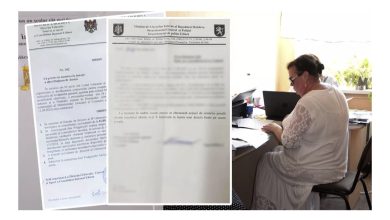The BC Is Being Sued by Some TV Channels Classified as National. What Reasons Do TV Channel Administrations Invoke?

Several TV channels classified as regional until the spring of this year sued the Broadcasting Council (BC) for being declared national channels. Among other things, the channels’ representatives invoke financial reasons, as they are obliged to broadcast twice as much local product. On the other hand, the authority affirms that the objective pursued is equity among media service providers.
The TV channels sued the BC on June 14 and 16, 2022. In the first case, it concerned the companies which owned such channels as RTR Moldova, Bravo TV, Cinema 1, and PEH TV, and the second lawsuit was filed by Agro TV and N4. The reason was the decision issued in March this year, according to which the broadcasting authority adopted a new classification of media service providers into the national, regional, and local ones. According to the document which entered into force on September 1, 41 national, 10 regional, and 7 local channels are currently active in the Republic of Moldova. The previous classification adopted in 2019 included only 13 national TV channels, whereas 38 were registered as regional and 10 as local.
Currently, the lawsuits are at the stage of hearing the parties.
When contacted by Media Azi, Evghenii Sergheev, RTR Moldova Director who also manages Bravo TV channel, told us that the main thing which dissatisfied them about the BC decision was the lack of reasoning. “You won’t find any explanation for the amendments made or the transition from the regional to the national category of the channels. You will read just a few paragraphs declaring the amendment in question, and you will find an attached list of the channels. But we would like to know exactly why those changes were made,” Sergheev affirms. Another reason why he challenges the Council’s decision is the fact that RTR Moldova broadcasts via cable, and according to him, the channels broadcasting via cable are regional according to the definition, at least in the previous classifier.
In addition, RTR Moldova Director doubts the data regarding the audience used by the BC for their calculations. He says that, according to the Electronic Communication Regulation Agency (ANRCETI), “we don’t have the number of population equal to a national audience.” “Of course it [the national channel status] is more prestigious. Yet there’s a small catch… The national channel category means that we’ll have to broadcast twice as much local product, that is, eight hours instead of four, and that implies new expenses. Moldova is a small market, we don’t have advertising, and TV channels struggle,” Sergheev specified.
According to RTR Moldova Director, the first group of TV channels has obtained the suspension of the BC decision in court for the time. Grigore Chitanu, the BC lawyer, says that the authority addressed the Court of Appeal.
Denis Poleacov, REN TV Director, has told us that he cannot comment on the lawsuit against the BC at the moment, and Eugeniu Sirbu, Agro TV channel administrator, invokes the same reasons for dissatisfaction. “Yes, we have sued them. We haven’t changed the territorial coverage area we have had from the very beginning, for six years. We are also a topic-based channel. Likewise, we are a cable TV channel; we don’t use air for broadcasting. And even if we do, we are regarded as a topic-based channel anyway: we broadcast for a narrow audience.”
When asked if the Republic of Moldova which is an agrarian country needs a national channel to expand the topic, Sirbu invoked the same economic argument: “The national channel category doesn’t suit us for reasons of budget, because we would have to broadcast eight hours of local product instead of four hours.”
“They would have been eager to be considered the national ones, but in this category, they have to broadcast eight hours of local content, twice as much as in the regional category,” the BC lawyer told us. As to the economic reasons the channels’ representatives invoke, Grigore Chitanu says that the amount of local product must be ensured, and it is a provision for obtaining the broadcasting license.
The BC lawyer claims that the institution has to revise the classifier using an article in the Media Services Code, which stipulates that the BC shall prepare and publish the list of national, regional, and local media service providers on its official webpage at least once a year.”During the year, a lot of aspects can change in the life of a broadcasting institution. (…) The BC aimed to reach greater equity, because, though some broadcasters were considered regional, they have national coverage, and their programs are broadcast nationwide,” Chitanu concluded.
Liliana Vitu, the BC President, emphasized the same aspect at the BC public meeting. Speaking about the new classifier, she urged the broadcasters to pay attention to the fact that, depending on the category, new obligations on producing and broadcasting local audiovisual programs and programs in Romanian had been established for the radio stations and TV channels.
“The law stipulates two criteria for determining whether a provider is national, regional, or local. The first one takes into account the prospective number of viewers of the channel either resulting from the territorial coverage or according to the distributor. The second one is an offer or a program grid demonstrating which audience the channel is intended for: it can be national but niche or it can only cover a specific region of the country, such as the north or the south. The criteria are clear. Therefore, we have to go to court to prove our arguments,” Liliana Vitu told us about the two lawsuits.




